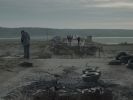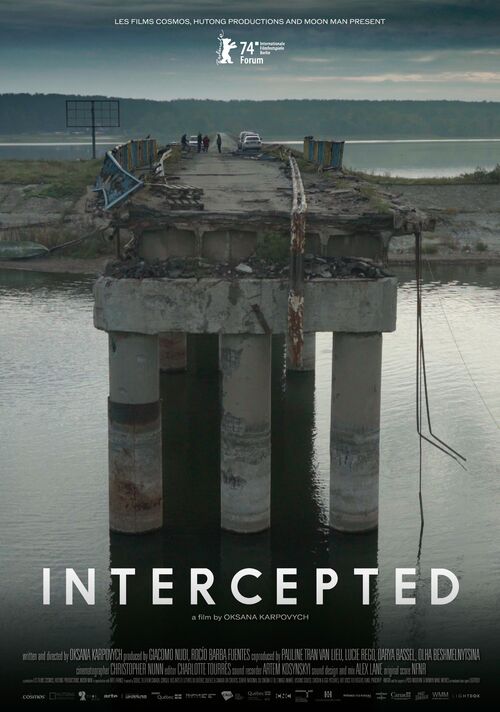Eye For Film >> Movies >> Intercepted (2024) Film Review
Intercepted
Reviewed by: Amber Wilkinson

As Russia’s bloody invasion of Ukraine continues, so does the steady stream of documentaries, articulating the brutality of the war and the resilience of the populace, including recent Oscar-winner 20 Days In Mariupol, Rule Of Two Walls and In The Rearview. Ukrainian director Oksana Karpovych’s stark film is another hard to watch but essential consideration of the conflict. In it, she marries images from her ravaged country with phone calls between Russian soldiers and their loved ones in Russia intercepted between March and November 2022.
The end result is an often chilling consideration of, not just the attitude of the soldiers but of the folks they are in contact with back home, while testifying to Ukrainian resistance in the face of it.

The visuals are split into two main categories - static and moving. Many are long, fixed takes of household spaces left bombed out by the Russians. The steady framing allows us to take in each space, the traces of those who lived there still in evidence, eggs left uneaten in a kitchen, as the wind blows in through a broken window or a handbag hanging on a coat stand, the echo of someone who once lived there an whose whereabouts will remain unknown to us. Elsewhere, rooms lie in complete ruins, a cooker standing in the middle of a pile of rubble, although, through a window, we can see life continuing as a woman walks by with a shopping bag.
In between, we take on the point of view of a tank as it makes its way down various roads to a low and threatening rumble of score and sound design. As people are encountered, it prompts you to think how lucky they are to only be shot by a camera. Intermittently over this come the phone conversations, sometimes from soldiers fearful about the situation and, occasionally, from those questioning the sense and motivations of war - something, you suspect, will have become more prevalent as the months have continued to roll on. Most often, however, these are exchanges dripping with vitriol and frequently denigrating the Ukrainians with the racial slur “khokhols”.
In some there is talk of looting - “everything here is high quality!” one soldier declares, while another talks about how they stole ice cream that was better than what is on offer at home. Others are more horrifying, as the recruits casually recount being told to kill all civilians. “I’m shocked,” one woman says in response to the soldier. You will be too as worse is to come, as one outlines torture in gruesome detail as his mother notes, “I would also get off on it!”. The silence between the calls serves as a space for the horror of them to fully take shape in the viewers’ mind. Given that these are calls intercepted by Ukraine, some might point to a propaganda dimension, but you only need to turn on the nightly news to see evidence of exactly what is being discussed here.
Karpovych’s film shares some DNA with the recent The Zone Of Interest, in its spare and sombre highlighting of the banality of evil. The flipside of this is everyday resilience - a man smoking a cigarette as workmen fix a bomb crater in the street below his window, a woman brushing away the broken glass from a blast and the bright hopefulness of the Ukrainian flag, which is a recurrent motif.
Reviewed on: 03 Apr 2024
















